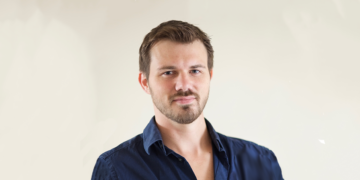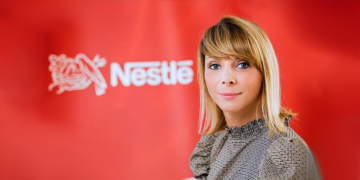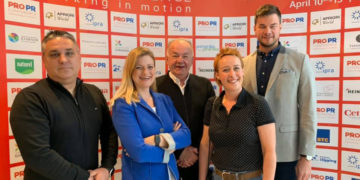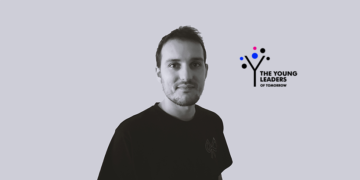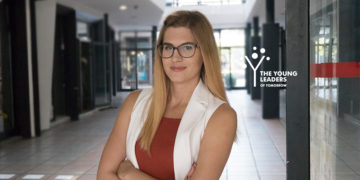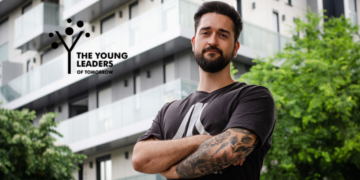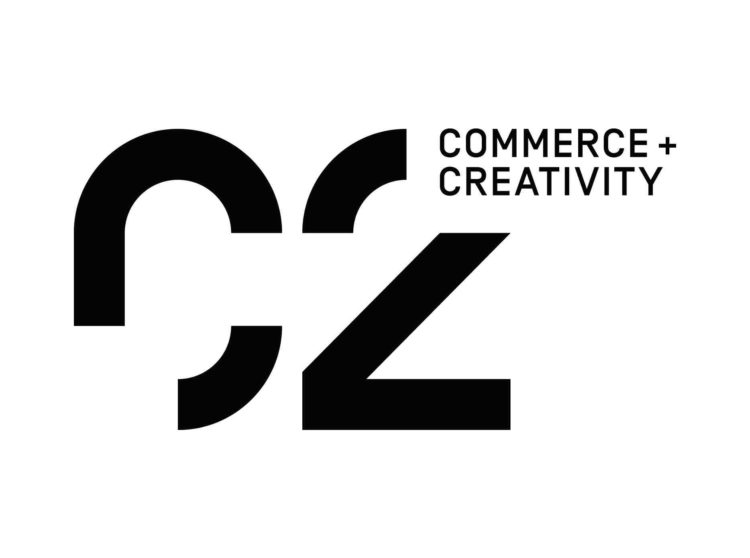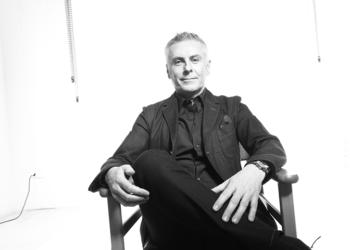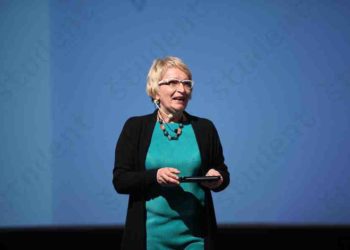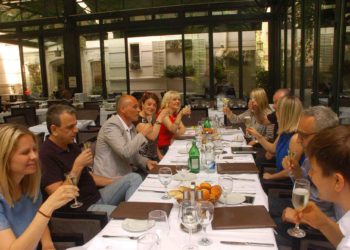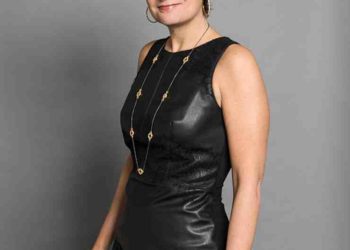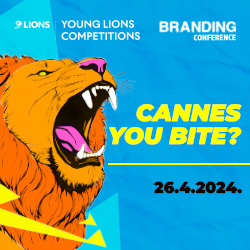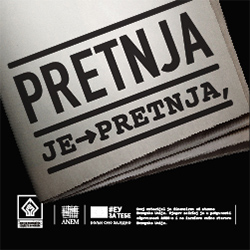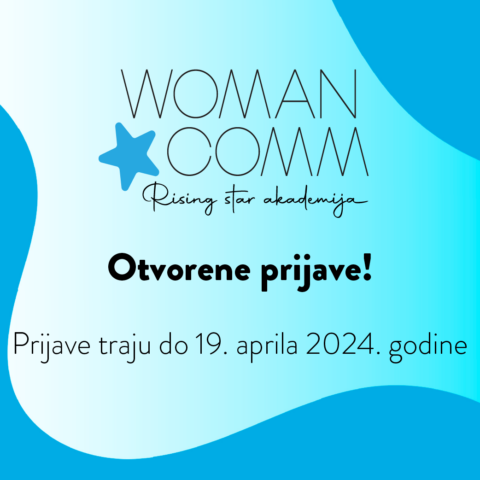Drugi jezik na kojem je dostupan ovaj članak: Bosnian
The word of the second day of the C2 conference is the future. And it’s not some imaginary future that we imagine and fantasize about, but one that is already here and has become our present. It’s the future that we are living in, although we don’t quite understand it, and therefore often have no clue what’s going on – and much less what tomorrow has in store.
For people who deal with communication, it’s certainly important to know that storytelling has served its purpose. At least that’s what Mike Yapp says. The founder and CEO of Google’s Zoo agency announced a new stage – hypertelling. He defines it as storytelling with a focus on the user. Thanks to the IT revolution, the story itself is no longer linear, and it’s no longer about how we tell a story, but how to take part in it and how it’s experienced. The borders between the storyteller and the listener / viewer are being erased. There is no longer a script or a stage. Everyone is an active participant in the story in which they find themselves. Thanks to the abundance of data that we produce about ourselves at any given moment, which are remembered and processed by smart machines which then profile us, our role in the story will be determined in advance, without us even realizing it. Full personalization of content will finally achieve the goal of each successful communication – that the story be contextually relevant. Then we will no longer question whether we believe in the story that we hear and see – we perceive ourselves as its creators. A complete merger of the message and the media is coming about. The explosive development of VR tech and the huge amounts of money invested in its development are proof that the future has already arrived. Mike Yapp therefore believes that virtual reality is a natural evolution of storytelling, and that very soon the term “storyteller” should be replaced by the term “storydoer”. And since we all know that Google knows everything, Mike is to be trusted.
Along the same lines, but from a different angle, her own view of the future that has begun was given by Joanna Pena Bickley, global creative director of IBM. She also starts from the huge amounts of very diverse data produced and stored every second – 90% of all existing data in the world has been generated in the last two years. The data constitute a key source for the development of cognitive information technology or, in simple terms, machines that think. This fact necessarily leads to the consideration of a different relationship of man towards machines, or more precisely, the relationship between man and machines. That was nicely defined today by philosophy professor Nick Bostrom of Oxford University – computer intelligence must contribute to the development of humanity and give people new knowledge and skills, and not subordinate people to itself. Knowing the history of mankind, the real question is how to prevent a minority from using smart machines to subdue and exploit the majority. And has this begun to happen already?
Of course, it’s impossible to talk about the future and smart machines without mentioning robots. They were the subject for Kate Darling, a research specialist at the MIT Media Lab and an associate at Harvard’s Berkman Center. What attracts people to robots? According to Dr. Darling, it’s the physical form itself, then the fact that they can move and that these movements are predictable, and a lot also depends on whether we think they look sweet and cute. People are therefore most open to humanoid robots, or those that take the form of their favorite animals. Such robots are already experimentally used as aids for the elderly, especially those suffering from dementia, as well as people with special needs, because they establish a personal relationship with them, which has a calming and positive effect. Of course, in addition to the positive effects, this technology can also be misused. That’s why a new term is already slowly creeping into circulation – manipulative technologies. A special department for personal robotics at MIT deals with precisely this topic.
Apart from smart machines, virtual reality and robots, the technological revolution is fundamentally changing the existing economic and social models in which we live, and this future is also already here. The previous model was based on the idea of owning things, the new model is based on the joint use of things. That’s why the sharing economy is rapidly growing, which is based on joint use, or rather collaborative consumption.
Two representatives of this trend took the stage today in Montreal. One of them was Paul DeLong, President and CEO of car2go, founded eight years ago. Today car2go operates in nine countries, has 1.4 million members and a ride is reserved every 23 seconds. DeLong says that one of the crucial elements for the success of the company is a sense of belonging to a community consisting of members. As an example he uses the blizzard that struck the East Coast of US this winter and the mass response of their members to assist in digging up vehicles buried in snow.
The other was Chip Conley, Head of Global Hospitality and Strategy at Airbnb, who was invited by the three founders to join them in 2013 after he successfully sold his chain of boutique hotels. He believes that the application of the sharing economy model in the hotel industry radically changes the concept of hospitality and that the cooperation between the host and the guest practically and constantly raises the level of service and satisfaction for both sides. As evidence, he notes that in the traditional hotel business only about 10% of guests answer a questionnaire about their experience, while the percentage among Airbnb users is 75-80% (of both hosts and guests). He, like Paul, points out that the sharing economy is more than just an economic model, and as an example noted the request of the organizers of the Olympics in Rio to actively promote their services prior to the games, reducing the need to build additional hotel capacities which wouldn’t be economically justifiable after the games, and at the same time enabling locals to earn additional money. In addition, due to favorable accommodation prices, the number of visitors to the event increases. Overall, 35% of their guests decide to travel somewhere just because this model allows them to adapt accommodation to their specific needs and budget. Today Airbnb has 90 million users in 34 thousand cities, and 2.2 million accommodation units in offer, exactly as many rooms as Sheraton, Intercontinental and Marriott have combined!
And finally – what is the future of the ideals for which man has always fought? Will man be freer, more equal, will there be more justice in the world and fewer of the hungry and poor? Here there are also two possible responses, diametrically opposite to each other. It’s good that professor Muhammad Yunus, founder of Grameen Bank for micro loans and a Nobel Peace Prize laureate, spoke about this. He started the project of issuing micro loans to the poor in his native Bangladesh, and today his Grameen Bank operates in several countries of the world including the US, where it has eight branches. It stimulates the recipients of loans to take advantage of this money and start their own small businesses, and thereby create the conditions to never again depend on the help of others. This is what he considers his main mission. He’s a great critic of the banking sector, since he doesn’t see sense in a system in which banks don’t lend money to those who don’t have it and are in need, while giving it to those who already have it. He says the existing economic system is based on greed, but believes that we are able to create a model that will serve the needs of the many, and not fulfill the wishes of the few.






